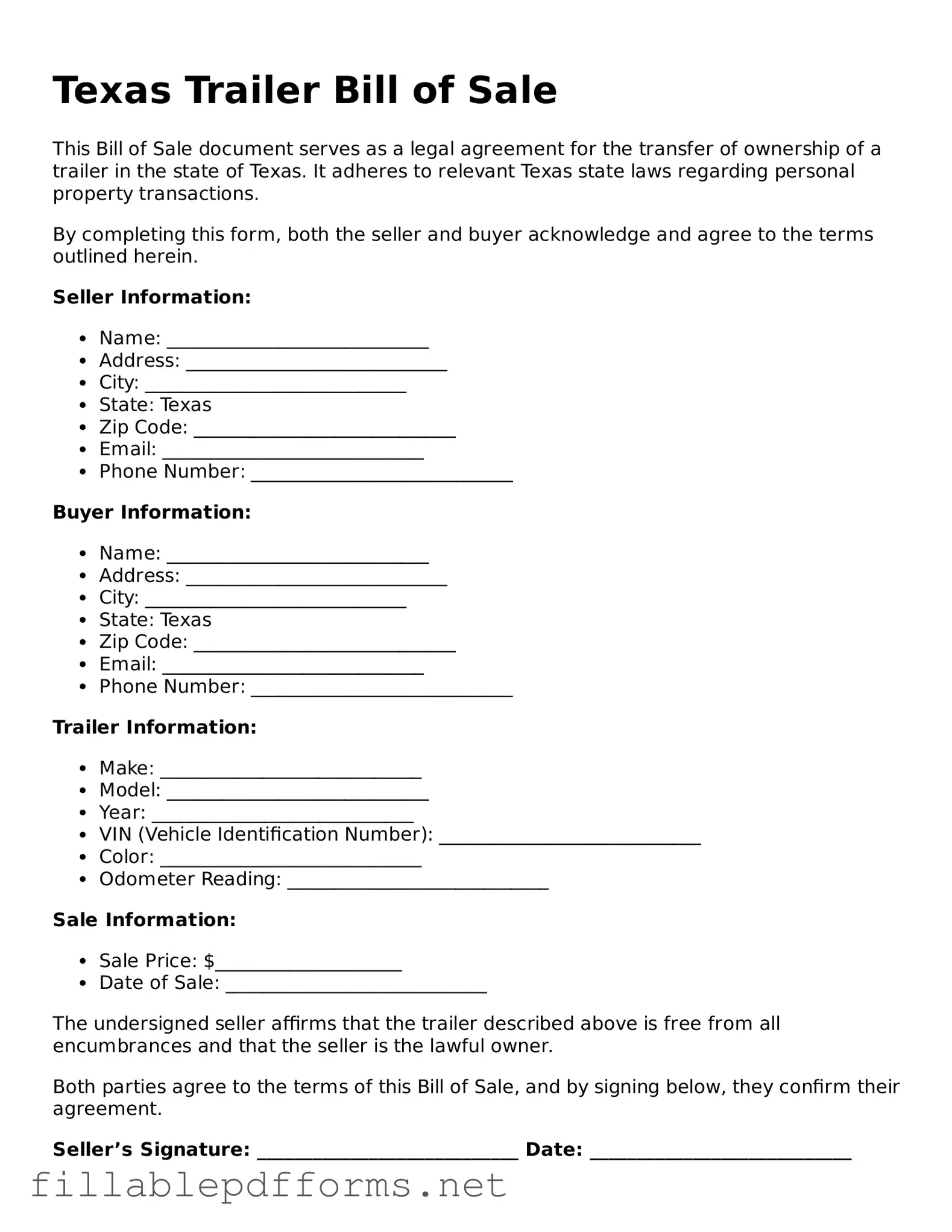Attorney-Verified Trailer Bill of Sale Form for Texas State
The Texas Trailer Bill of Sale form serves as a legal document that records the sale and transfer of ownership of a trailer in Texas. This form protects both the buyer and seller by providing essential details about the transaction, such as the trailer's identification and sale price. Understanding its components is crucial for ensuring a smooth transfer of ownership and compliance with state regulations.
Launch Editor Here

Attorney-Verified Trailer Bill of Sale Form for Texas State
Launch Editor Here

Launch Editor Here
or
▼ Trailer Bill of Sale PDF
Almost there — finish the form
Complete Trailer Bill of Sale online fast — no printing, no scanning.